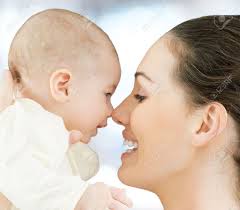Have you ever wanted to ask a Psychologist how they apply their psychology training to their own parenting? Dr. Darshana Lele, PhD, Director of Psychology and a Licensed Psychologist at the Art Center College of Design, shared that she applies her psychology training to parenting her daughter, by looking at Attachment Inventory. She also revealed ways that well-meaning parents could inadvertently actually steer their kids toward a less healthy attachment.
One of the core principles of Psychology, Attachment Theory, discuses that there’s one type of secure (healthy) attachment a child can form with their primary caregiver, and there are three types of insecure attachment. A person’s attachment style stays with them for their whole life, and they will choose future partners based on their attachment style. Children with insecure attachments may be more vulnerable to anxiety, anger, and depression, and they may demonstrate behavioral issues in school. Which type of attachment are you promoting with your kids?
- Secure: When an infant learns that their needs will be met, by their primary caregiver (typically the mother), they learn to trust. They form a secure attachment to their mother, typically in the first year, missing her when she leaves and feeling relieved when she returns. Then they learn to explore the world, using their mother as a secure base to return to. With a strong foundation of trust, these children develop into confident, caring adults, capable of trusting a romantic partner.
- Disorganized: Children from abusive families form a disorganized attachment. The child is caught in a dilemma, where her survival instincts tell her to flee to her parent for safety, but her (abusive) parent is the one causing the danger. These children end up in a conflicted state, and they have the worst prognosis for being able to trust people in future relationships.
- Anxious (or Anxious-Ambivalent): If a parent is so overly involved or anxious that they don’t let their child explore the world in a safe way, they may inadvertently teach their child that the world is a dangerous and bad place. For example, if a parent consistently responds to their child with intense, fearful or over-protective comments like, “No, no, no, that’s dirty”, or, “Oh my God, it’s dark there”, or “Just stay close to mom, don’t go too far”, this can lead to a very clingy, over-dependent, and anxious adult.
- Avoidant: If a parent is too uninvolved, doesn’t care enough, or discourages intimacy, they may contribute to an avoidant attachment style. For example, if a parent doesn’t respond when their child needs them or just says, “You’re OK,” they teach their child that they won’t get help or comfort from those around them. Likewise, if a parent tells their child, “Boys don’t hug teddy bears. That’s for sissy’s”, the child may feel that intimacy isn’t OK.
How do you promote a secure attachment? First and most important, are you consistently meeting your child’s needs? If you’re feeding your child when he’s hungry, changing him when he’s dirty, keeping him safe, and letting him know he’s loved, you’re off to a great start. “Ask questions. Try to understand what they need,” suggests Dr. Lele, “It starts from day 1.”
Second, are you finding a balance, with nurturing your child, but also letting your child explore the world? To create a secure attachment, you want to react sensitively, reassuringly and consistently to the child’s needs, rather than dismissing their emotions. But you also need to relax enough to let them explore within a safe space. If you find you suffer from anxiety, one of the best things you can do for your child is to take care of yourself and your needs.
Third, it goes unsaid (but we’re saying it anyway), ignoring a baby’s needs or behaving abusively towards a baby can have long-lasting damaging effects.
Last, Dr. Lele suggests, for all parents, that just talking and reading to a baby helps support their mental health in many ways. “Whatever you may be thinking internally, say it out loud,” explains Dr. Lele. “Research shows that babies who are spoken to from day 1 are more verbal, more expressive, happier, and healthier.”
If you enjoyed this article and you’d like to see more from Mama Lovejoy, “like” my Facebook page, follow @MamaLovejoy1 on Twitter, Instagram or Tumblr, or check out www.mamalovejoy.com.

Such a great article Cary!!